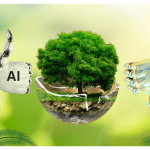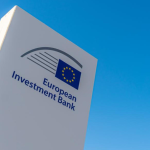Executive Summary
The integration of carbon credits into funding strategies for solar and wind projects in rural Kenya presents a significant opportunity for enhancing energy access while contributing to global climate goals.
Carbon credits are increasingly being utilized as a vital financing mechanism, enabling the development of renewable energy initiatives that improve access to clean energy for rural communities.
As the carbon trading market matures and regulatory frameworks are established, there is potential for increased investment in renewable technologies, which will support broader climate objectives.
Introduction and Background
In Kenya, carbon credits are increasingly utilized to fund renewable energy projects, particularly solar and wind initiatives, by providing a financial mechanism that supports sustainable practices and reduces greenhouse gas emissions.
Kenya has established a carbon trading framework that facilitates the generation and sale of these credits, enabling projects to attract investment while contributing to national climate goals.
Data and Analysis
How carbon credits are being used to fund solar and wind projects in rural Kenya
- Carbon Trading Framework
- Kenya is developing a comprehensive carbon trading market that facilitates the generation and sale of carbon credits, crucial for attracting investments in renewable energy.
- KenGen's Initiatives
- The Kenya Electricity Generating Company (KenGen) has successfully generated over 550,000 carbon credits from its geothermal projects, valued at approximately USD 3.8 million, supporting further investments in renewable energy capacity.
- Voluntary Carbon Market Participation
- Projects like the Tamuwa renewable biomass initiative have traded over two million carbon credits, showcasing the potential of biomass and other renewable sources.
- Community-Based Projects
- Local initiatives, including energy-efficient cookstoves and sustainable grassland management, generate carbon credits while enhancing community livelihoods.
- International Support and Compliance Markets
- Kenya is exploring compliance markets under the Paris Agreement, allowing for the sale of carbon credits to international buyers seeking to offset emissions.
Benefits of Carbon Credits for Renewable Energy
- Financial Incentives: Carbon credits reduce the initial investment burden on solar and wind projects, making them more viable for rural communities.
- Attracting Investors: The ability to earn carbon credits enhances the appeal of renewable energy projects to equity investors.
- Supporting National Goals: Integrating carbon credit mechanisms aligns with Kenya's target of achieving 100% clean energy by 2030.
Future Potential
The integration of carbon credits into funding strategies for solar and wind projects in rural Kenya holds significant promise. As the market matures, there is potential for increased investment in renewable technologies, enhanced community resilience, and contributions to global climate goals. Overall, carbon credits are crucial in financing these initiatives, supporting sustainable development and environmental stewardship while addressing pressing energy needs in rural areas.
Key Findings
Key Projects
- SunCulture Solar Irrigation Systems
- Description: SunCulture has initiated a project that sells carbon credits generated from solar irrigation systems. This initiative aims to reduce the cost of these systems for smallholder farmers.
- Impact: The project targets low-income farming households, enhancing climate resilience and productivity through improved irrigation practices. It has received a $2.6 million investment from the British International Investment (BII) and Shell Foundation to scale its operations.
- Monsoon Carbon's I-REC Project
- Description: Monsoon Carbon has registered a solar power plant in Kenya under the International Attribute Tracking Standard (I-REC), enabling the generation of renewable energy certificates.
- Impact: This project supports local energy needs while allowing companies to certify their consumption of renewable electricity, contributing to Kenya's goal of achieving 100% renewable electricity by 2030.
- KenGen's Renewable Energy Projects
- Description: KenGen, Kenya’s largest power generator, has leveraged the Clean Development Mechanism (CDM) to generate tradable carbon credits from its geothermal projects.
- Impact: The Olkaria II project has produced over 550,000 carbon reduction credits valued at approximately $3.8 million, showcasing how large-scale renewable projects can benefit from carbon markets.
Financing Mechanisms
- Carbon Credit Sales: Projects like SunCulture utilize carbon credits to lower upfront costs for farmers, making renewable technologies more accessible.
- Result-Based Financing (RBF): This mechanism is employed to mimic high prices for carbon offsets, incentivizing investments in sustainable practices.
- Voluntary Carbon Market Participation: Kenyan projects are increasingly participating in voluntary carbon markets, generating credits that can be sold to corporations looking to offset their emissions.
Future Potential
- Increased Investment Opportunities: The establishment of a robust carbon trading framework in Kenya is expected to attract more private capital into renewable energy projects.
- Expansion of Carbon Credit Projects: There is significant potential for expanding carbon credit initiatives into other areas such as sustainable agriculture and waste management.
- Community Empowerment: By integrating local communities into these projects, there is an opportunity for job creation and improved livelihoods while addressing climate change.
Recommendations
- Involve local communities in carbon credit projects to enhance livelihoods and support sustainability.
- Provide training for local businesses on developing carbon credit-generating projects.
- Collaborate with international organizations for funding and technical expertise in renewable energy projects.
- Encourage a range of projects, including sustainable agriculture and waste management, to increase carbon credit generation.
- Implement technology solutions for accurate monitoring and verification of emissions reductions.
- Participate in compliance markets under the Paris Agreement to access additional revenue opportunities.
References








